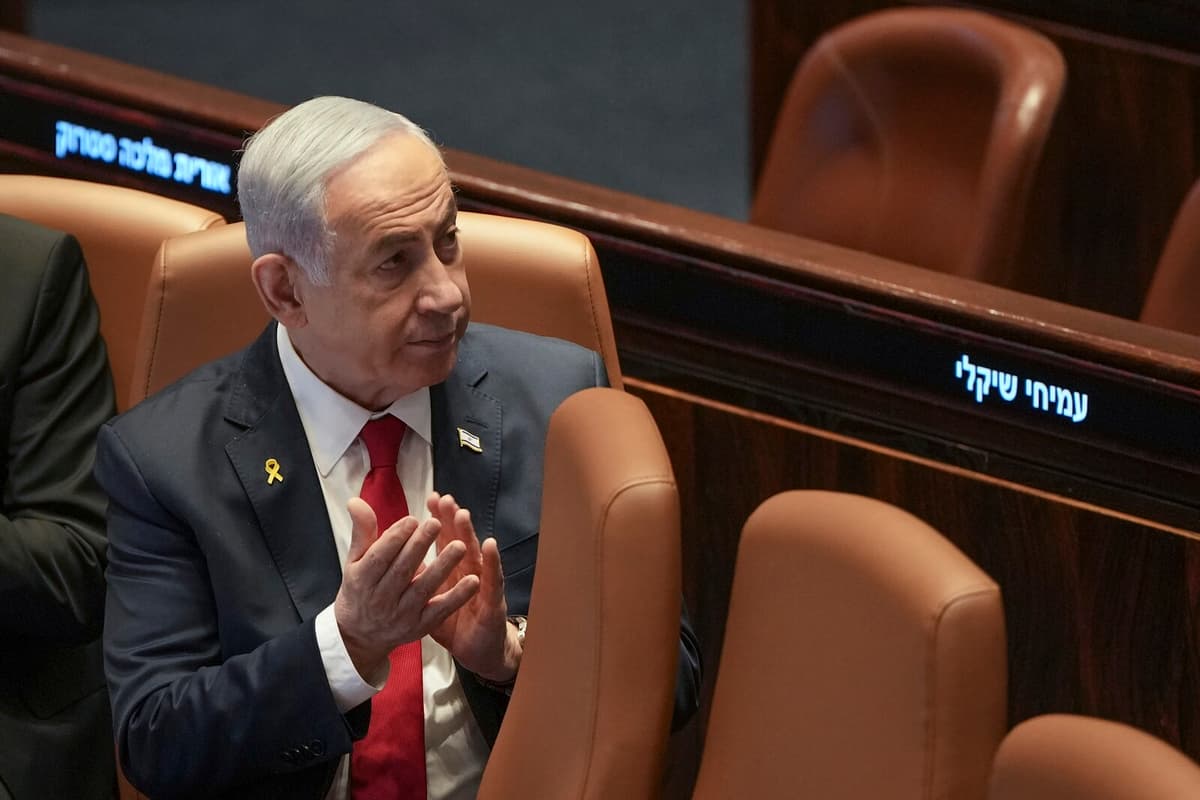Netanyahu says that he will present the proposal to the government during the evening. He does not want to say how long the ceasefire will last – but refers to how the situation develops in Lebanon.
We have destroyed most of the rockets and robots. We have killed thousands of terrorists and we have destroyed the underground terrorist infrastructure near our borders, says Netanyahu during a press conference.
Furthermore, he says that he is "firmly determined" to keep Israel's soldiers alive.
That is why I will tonight present a plan for a ceasefire in Lebanon to the government.
"Agreement with the USA"
The USA has been primarily responsible for drafting the proposal, and Israel demands that the USA guarantees Lebanon's commitments – otherwise, Israel reserves the right to attack anyway, which Netanyahu emphasized in his speech.
He says that Israel has an "agreement" with the USA and that the country will retain its "full freedom to conduct military operations if Hezbollah tries to attack".
If Hezbollah tries to attack us, if they arm themselves and rebuild infrastructure near the border, then we will attack. If they fire rockets, if they dig large tunnels, then we will attack.
Hezbollah's side
The negotiations on behalf of the extremist militia Hezbollah are being conducted by Lebanon's Prime Minister Najib Mikati and Speaker Nabih Berri. They have also received blessings from Iran, the superpower that supplies Hezbollah with weapons and other resources.
After Netanyahu's speech, Mikati demands that the ceasefire is implemented immediately and urges the international community to act quickly to stop the "Israeli aggression".
The US President is also expected to comment on the development later on Tuesday.
Although Hamas in the Gaza Strip is also closely allied with Hezbollah and Iran, the war there is not covered by these talks. The Jerusalem Post writes, however, that Israel believes that a settlement with Hezbollah would also increase pressure on Hamas, so that the prospects for a ceasefire are also growing there.
Corrected: In an earlier version of the text, there was an incorrect description of the process for approving the ceasefire.
The terms for a ceasefire in Lebanon are not entirely settled, but the first phase is largely clear. It consists of a two-month transition period. During the 60 days, Israel's military will leave southern Lebanon. Hezbollah will move all its heavier weapons north of the Litani River.
A committee led by the USA will monitor that the parties do what they should. If Lebanon and others do not remove acute threats to Israel, there are reservations about the Jewish state's right to take military action.
Gradually during the two-month period, hundreds of thousands of evacuated civilians will also be able to start returning to their homes in northern Israel and southern Lebanon.






